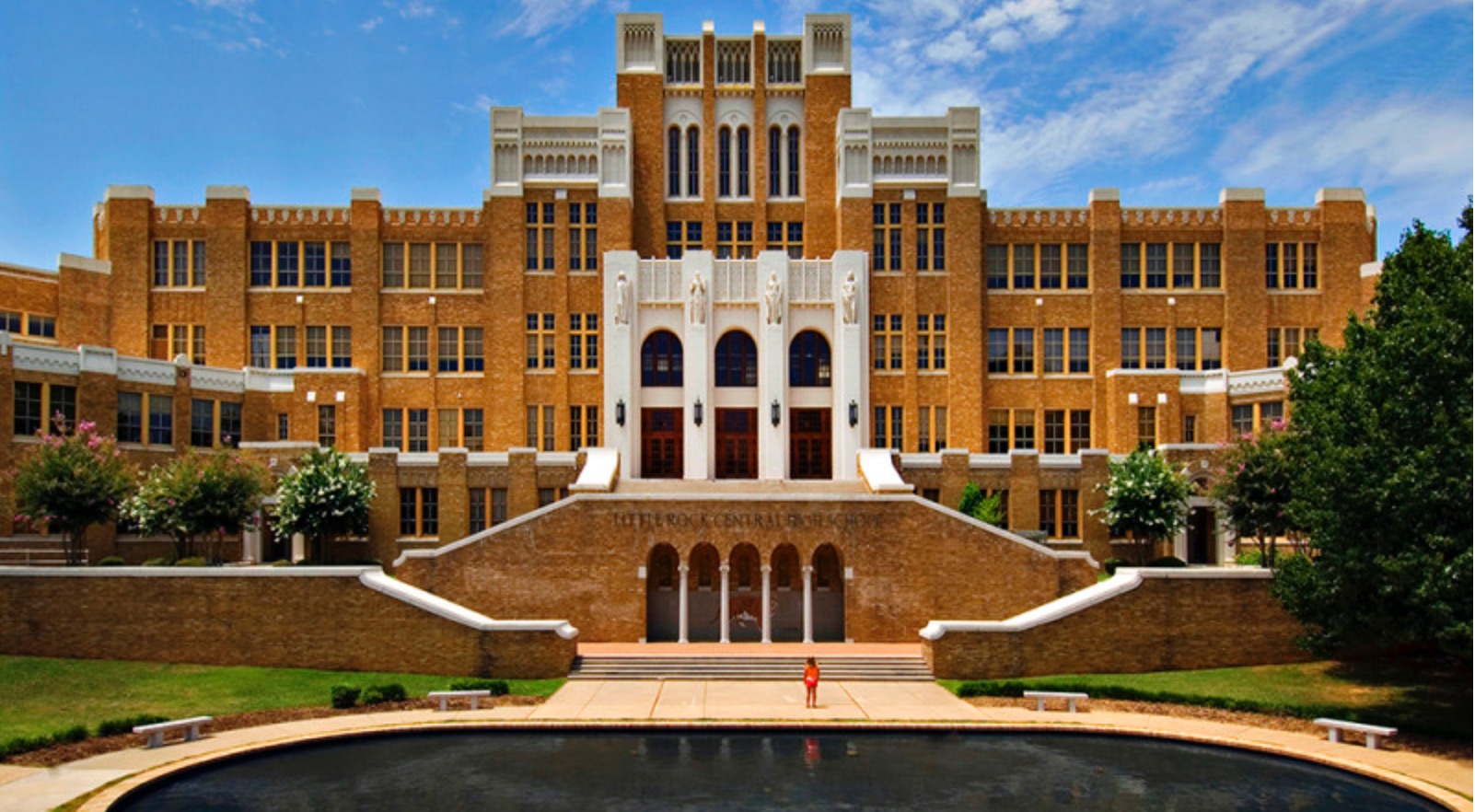Explore Black Heritage in Arkansas
Arkansas has an important place on the stage of black heritage. Below are a few options to visit that showcase this history and culture.
A U.S. Civil Rights Trail that includes over 100 attractions across 14 states includes sites from the civil rights era of the 1950s and 1960s. Arkansas is included in this project. Some sites on the trail include the Little Rock Central High School National Historic Site, the only active high school in the U.S. that is also a national historic site. This school was a major test of the Civil Rights Act when nine African-American students known as the Little Rock Nine integrated the all-white school. A visitor center across the street depicts this moment in history through exhibits. The Little Rock Nine Memorial, a statue on the grounds of the Arkansas State Capitol, now pays homage to the Little Rock Nine.

The Mosaic Templars Cultural Center in Little Rock is also on the trail and sits on the foundation of a cornerstone of African American heritage. The center, whose mission is to preserve the history of African Americans in Arkansas, is located in the middle of what was once a thriving black business district for Little Rock. There were barbershops, restaurants, churches, doctors and lawyers, everything you could want, all on 9th street. The center is located at the corner of 9th and Broadway. For more details on other sites in Arkansas on the U.S. Civil Rights Trail visit civilrightstrail.com/state/arkansas.
There are many other sites in Arkansas outside of the trail that pay homage to black history. A red brick building at 800 West 9th Street serves as a piece of cultural history in Little Rock. Built in 1916, Taborian Hall was the cultural hub of the city's black community, and is the last remaining original building of a historic black business district once known as “The Line.” When it was built, it was headquarters for the Arkansas Chapter of the Knights and Daughters of the Tabor, a black fraternal organization. The third-floor is home to the Dreamland Ballroom, which hosted many famous entertainers back in the day including Louis Armstrong, Duke Ellington, and Ella Fitzgerald. Now the building is the headquarters of the business Arkansas Flag and Banner and the company is working to renovate Dreamland Ballroom. If you are interested in learning the history of the building, tours are available by staff.
Businesses in Arkansas also play a role in our culture. The Carpenter family is a story of African-American success in the field of agriculture and Carpenter’s Produce is one of the most well-known produce spots in the state. It is open year-round and has fresh homegrown vegetables of all kinds, fish, smoked meats and more. They also provide produce for farmer’s markets. They have stores in Pine Bluff and Little Rock.
Another longstanding store in Little Rock is K. Hall and Sons, a black-owned business near Central High School. Founded as a produce store, it now also has a restaurant on site.
For those wanting to explore outside Central Arkansas, there are many options including the Eddie Mae Herron Center in Pocahontas, a museum and education center that is home to nearly 200 years of local African American history. The center is housed in the former St. Mary's Church/Pocahontas Colored School, a one-room building built in the early 1900s and named for the woman who taught at the school.
Stamps is a small town that was the childhood home of author Maya Angelou. She wrote about the town in her book, I Know Why the Caged Bird Sings, which received a National Book Award nomination. Angelou spent some of her childhood in the town in the home of her paternal grandmother, who ran the only African American general store in town. After Angelou’s passing, the city dedicated a city park and lake to her.
